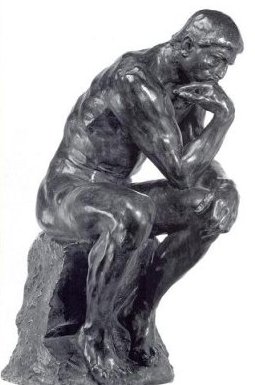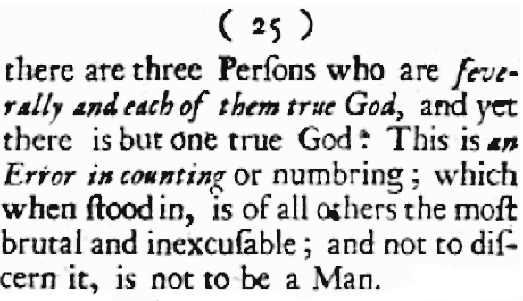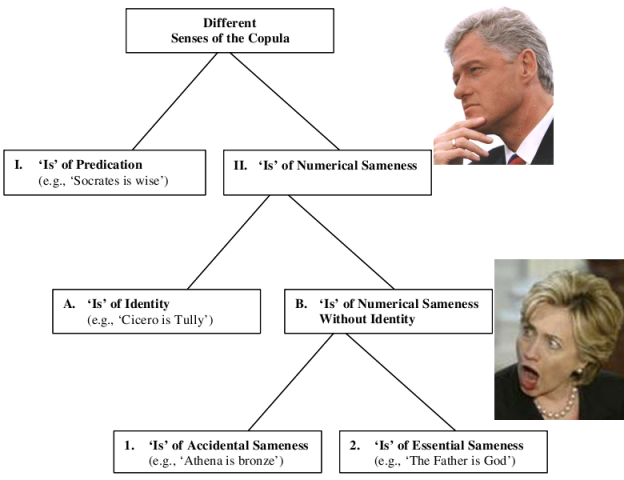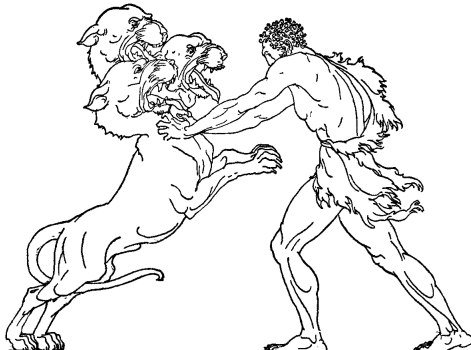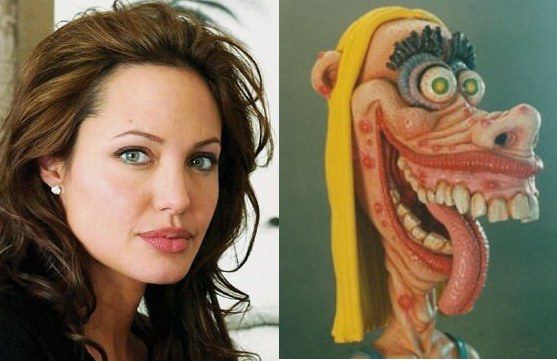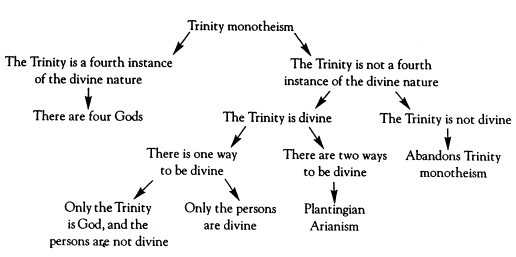The next theory up to bat is by philosophers Mike Rea of Notre Dame and Jeff Brower of Purdue University. In some ways Mike reminds me of his mentor Al Plantinga – a tall guy you don’t want to argue against unless you absolutely have to. He’s published many articles in metaphysics and philosophy of religion, and is perhaps best known for this book. He’s presently editing several books, including one of recent essays on the Trinity, which I’m really looking forward to seeing. Jeff is one of the best medieval philosophy specialists around, focusing on metaphysics, philosophy of religion, and ethics. I think he has excellent tastes in medieval philosophers. Both of these guys are top-notch, and you’ll always learn a lot from anything they publish. Both of them, by the way, have many papers available to download from their websites, and their other Trinity work will surely be discussed here at some future date. The one I’ll be discussing in this series is here. Theirs is a bold and controversial theory, and one which is quite out of step with the Social Trinitarian views that have been so popular of late.
“Material Constitution and the Trinity” (Faith and Philosophy 22:1, Jan 2005, 57-76) is a difficult and technical article, dense with argument. Philosophers will appreciate how well it’s crafted; I not sure many others can get through it! Here I’ll just lay out the broad lines of it, getting slightly more precise in future installments. Consider Ned the gnome:

How many things are pictured here? Read More »Constitution Trinitarianism Part 1: Ned and Lumpy


